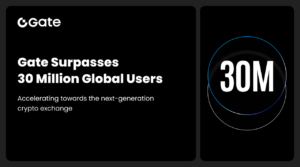
Introduction
Blockchain technology has the potential to revolutionize data management by improving data security and integrity. Traditional data management systems are centralized, making them vulnerable to cyber attacks and data breaches. In contrast, blockchain technology is decentralized, making it more secure and resistant to tampering. In this article, we will explore the potential for blockchain technology to improve data security and integrity, and the benefits and challenges of implementing blockchain in data management.
How Blockchain Technology Works
Blockchain technology is a distributed ledger that records transactions in a secure and tamper-proof manner. It consists of a network of nodes that participate in the validation and verification of transactions. Each transaction is recorded in a block, which is linked to the previous block in the chain, forming a permanent and unalterable record.
The decentralized nature of the blockchain makes it more secure than traditional data management systems. Because the blockchain is distributed across multiple nodes, there is no single point of failure, making it more resilient to cyber attacks and data breaches. Additionally, because the blockchain is immutable, it is resistant to tampering, ensuring the integrity of the data.
Benefits of Blockchain Technology in Data Management
Blockchain technology offers several benefits in data management, including:
Enhanced Security:
Blockchain technology uses cryptography to secure data, making it difficult for anyone to tamper with the information. This can help to prevent fraud, reduce the risk of cyber attacks, and enhance data privacy.
Improved Data Integrity:
Blockchain technology provides a tamper-proof record of all transactions, ensuring the integrity of the data. This can help to prevent data manipulation and ensure that the data is accurate and reliable.
Increased Transparency:
Blockchain technology provides a transparent record of all transactions, making it easy for all parties involved in the data management process to track the movement of data and ensure its safety.
Reduced Costs:
Blockchain technology can help to reduce the costs of data management by eliminating the need for intermediaries, minimizing paperwork, and reducing processing times.
Benefits of Blockchain Technology in Data Management
Security:
One of the key benefits of blockchain technology in data management is improved security. Data stored on the blockchain is encrypted and distributed across a network of computers, making it extremely difficult to hack or manipulate. This helps to ensure the integrity of the data and prevent unauthorized access.
Transparency:
Another benefit of blockchain technology in data management is increased transparency. Since data stored on the blockchain is visible to all participants in the network, it is more difficult to conceal information or manipulate data. This can help to increase trust among participants and promote more open and collaborative data sharing.
Efficiency:
Blockchain technology can also help to improve the efficiency of data management processes. By automating processes and reducing the need for intermediaries, blockchain technology can help to streamline data management and reduce costs.
Decentralization:
Another benefit of blockchain technology is its decentralized nature. Since data is stored on a distributed network of computers, there is no single point of failure or control. This helps to ensure that the data is more resilient and less susceptible to manipulation or corruption.
Data Ownership:
Blockchain technology can also help to promote greater data ownership and control. By giving individuals and organizations more control over their data, blockchain technology can help to promote greater privacy and reduce the risk of data breaches.
Improved Data Quality:
Since data stored on the blockchain is more secure and transparent, it is less likely to be tampered with or corrupted. This can help to ensure that data is of higher quality and more reliable.
Challenges of Implementing Blockchain in Data Management
While blockchain technology offers several benefits to data management, there are also some challenges that must be addressed before the technology can be widely adopted. Some of these challenges include:
Scalability:
Blockchain technology can be slow and cumbersome, especially when dealing with large volumes of data. This can make it difficult to implement the technology on a large scale.
Interoperability:
Different blockchain platforms may use different protocols and standards, making it difficult for them to communicate with each other. This can create interoperability issues and prevent the seamless integration of blockchain technology in data management.
Adoption:
Adoption of blockchain technology in data management requires the cooperation of multiple parties, including data providers, data consumers, and technology providers. Getting all parties to agree on the adoption of a blockchain solution can be challenging.
Regulation:
There is currently a lack of regulation around blockchain technology, making it difficult to ensure compliance with legal and regulatory requirements.
Use Cases of Blockchain Technology in Data Management
Blockchain technology is already being used in various applications in data management. Here are some use cases of blockchain technology in data management:
Supply Chain Management:
Blockchain technology can be used to track the movement of goods in the supply chain, providing transparency and accountability. This can help to prevent fraud and ensure that products are sourced ethically and sustainably.
Healthcare:
Blockchain technology can be used to store and manage electronic health records, providing patients with greater control over their medical data. This can help to improve the quality of care and reduce the risk of medical errors.
Banking and Finance:
Blockchain technology can be used to facilitate secure and efficient transactions, reducing the risk of fraud and increasing the speed of transactions.
Identity Management:
Blockchain technology can be used to create a secure and tamper-proof identity management system, providing individuals with greater control over their personal data and reducing the risk of identity theft.
Digital Advertising:
Blockchain technology can be used to create a transparent and secure platform for digital advertising, reducing the risk of fraud and increasing the efficiency of ad campaigns.
Challenges to Overcome in Implementing Blockchain in Data Management
To fully realize the benefits of blockchain technology in data management, there are several challenges that must be overcome. These challenges include:
Education and Awareness:
Many companies and organizations are still unfamiliar with blockchain technology and may not understand its potential. Educating stakeholders about the benefits and challenges of blockchain technology is essential to promoting its adoption.
Integration with Existing Systems:
Integrating blockchain technology with existing data management systems can be complex, especially when dealing with legacy systems. Finding ways to seamlessly integrate blockchain technology with existing systems is essential to promoting its adoption.
Standards and Interoperability:
Lack of standards and interoperability between different blockchain platforms can create challenges for adoption. Developing common standards and protocols is essential to ensure that different blockchain platforms can communicate with each other seamlessly.
Regulation and Compliance:
As with any new technology, regulation and compliance can be a challenge. Developing clear regulatory frameworks and ensuring compliance with legal and regulatory requirements is essential to promoting the adoption of blockchain technology in data management.
Conclusion
Blockchain technology has the potential to transform data management by providing improved security, transparency, efficiency, and decentralization. While there are still challenges that must be addressed, the benefits of blockchain technology in data management are clear. By adopting blockchain technology, companies and organizations can improve the quality of their data, reduce costs, and gain a competitive advantage in the market. As the technology continues to evolve, we can expect to see more innovative applications of blockchain technology in data management.
I’m a highly experienced and respected author in the field of Cryptocurrencies. I have written numerous articles and books on the subject, and my work is highly regarded by my peers. I have a strong understanding of the technology behind cryptocurrencies, and I am always up-to-date with the latest developments in the space. I am also an active investor in cryptocurrencies, and I have made a significant profit from investing in this new asset class. In addition to my writing and investment activities, I am also an active member of the cryptocurrency community, and I frequently speak at industry events.








